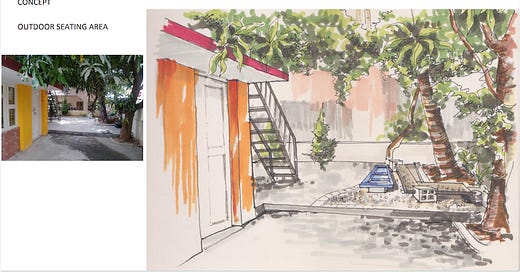Timeline
December 2019 — March 2020
But Why?
Although people loved filters, and the word of mouth (WOM) had started, it was too slow. To accelerate the WOM we needed to get more social. All the features in the app till now were solely for music listening, and we felt adding a social layer is the key to generating network effects and WOM.
Our goal has always to build tech with harmony between digital and real life in mind. We did not want to create another social media company where people just hooked to their phones, and wanted them to get out and meet people in real life.
After introducing filters, an indie music community had automatically started forming on our app, and almost all of them frequently went to intimate gigs hosted at people’s homes. They are a fantastic way to interact with an artist, meet new people, and just unwind and let all go.
Almost all of these intimate gigs are hosted by unorganised individuals; there is no clear social network you can access before going to a gig like this. Every person you meet there, and even artists (Sofar) are a surprise. There is a clear opportunity for a platform that provides a social space to book these gigs, and meet people even before attending them.
Experiment
We built a venue in Bangalore, and partnered with a few Indie artists across India to start a pilot. By the end of February 2020, we had 3 artists lined up to perform in the month of March.
Users would be able to request access to their gigs using our app directly, and get to know who else is joining even before coming there.
If this experiment worked, we would move the pilot out of our venue, and built a full fledged platform for first discovering musicians on the app, and then requesting them to come perform at your house.
Observations
Right after we built the venue, COVID hit. Everything was shut down. Gigs seemed impossible for a very very long time.
As people were disconnected with each other completely, music became a really organic medium for them to bond. Discord servers to listen together sprang up, and almost all the communal listening shifted online.
Conclusion
We ended up losing a lot of money and time on this venue, and Covid restrictions stayed for more than a year. The entire situation was quite devastating for us overall.
We learnt that from here on we’ll not hinge on physical mediums for our business, and will always try to be a digital interface that augments people’s real lives. Even if gigs are hosted in the future through Lishash, we’ll not own venues.
Pivot to a social music app that offers a way for people to connect digitally.




